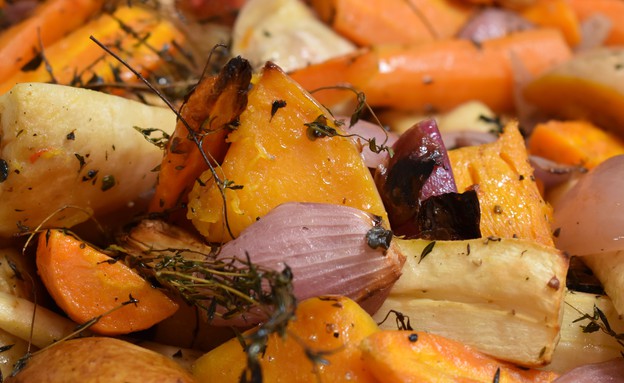Carrot: Contains antioxidants to prevent disease
This sweet and sweet orange vegetable that blends in fresh salad, soup and even cakes, is a great source of antioxidants and vitamins, such as vitamin A, known as antioxidant that helps prevent disease and protection on the body, and vitamin K, which, among other things, helps with blood. Various studies have found that the carrot helps lower the bad cholesterol in the body.
On the vegetable shelves in the markets you may find carrots of different colors, but Mia Ben Efraim suggests that you first prefer the orange, the richest in Beta Carroten. Of course, you can also incorporate white or purple carrots on the menu, which are also rich in vitamins and minerals.
Beets: helps reduce cholesterol
The beets are very rich in fiber, iron and minerals such as magnesium, which helps the proper function of the cells in the body.
It helps reduce bad cholesterol, liver rehabilitation and “cleaning” blood vessels. It helps the body fight infections, anemia, hypertension and constipation. So yes, he can be a little dirty, but it’s certainly not a reason to avoid his consumption.
Sweet potato: enhances the vision
The sweet potato is a vegetable, but it is relatively rich in carbohydrates. However, it has plenty of health virtues: it improves vision, helps to better cope with menopause symptoms and even helps reduce stress. Unlike potato, which contains very little dietary fiber, it contains many fibers, which improves the glycemic kit. Its moderate eating is also recommended for diabetics.
According to Chinese medicine, orange vegetables and fruits such as sweet potato (and carrots, duals, apricot, shuk, papaya, persimmon and pumpkin) strengthen the spleen, responsible for the hunger and satiety mechanism and reduces the need for processed sweetness.
Ginger (ginger)
The ginger adds acute and aroma to tea, sparkle or any Asian stew. However, not many are aware that it is in fact food, as it is rich in antioxidants and antifungal components that help fight various infections in the body. If you suffer from nausea, cough, salt or abdominal pain, put a little ginger in boiling water and drink fun. This will help calm the unpleasant feeling.
Radish: against intestinal worms
Prepare salad for dinner? Try to add a few slices of fresh radish. Beyond the delicate spicy that upgrade the dish, you will earn a nice amount of vitamin C and also vital minerals like calcium specified for teeth and bones. By the way, the radish helps improve the body metabolism process, and if you suffer from gut worms it can help you say goodbye to peace.
Colorby: To improve digestive activity
The many nutritional fiber it contains turns the colourbi one of the most alert vegetables. Beyond that, these fibers contribute to improving ports and help prevent constipation. The colourbi contains a small amount of vitamin A, as well as vitamin E that helps skin health. Beyond that, the Colorby strengthens the immune system, balances the nervous system, and thanks to the great potassium it contains, it is also excellent for heart health.
Fresh or cooked?
If you are debating between fresh vegetable salad and rich vegetable soup – Mia Ben Ephraim offers you choose the first option. Ben Ephraim explains that unlike tomato, for example, that cooking becomes nutrients returns more available, when it comes to root vegetables there is no dietary advantage for cooking, and even vice versa-the vegetables lose a large part of the Vitamin C they contain.
And there is another reason: “One of the problems in cooking root vegetables is due to being lost from their fluids and shrinking, which often makes us eat a relatively large amount without feeling. Because these vegetables are very rich in dietary fiber, the matter can affect our digestion and in fact cause gases and a feeling of swelling Although it is important to diversify and eat both fresh and cooked vegetables, in this case I suggest consuming cooked root vegetables for two days and later than six in the evening.
